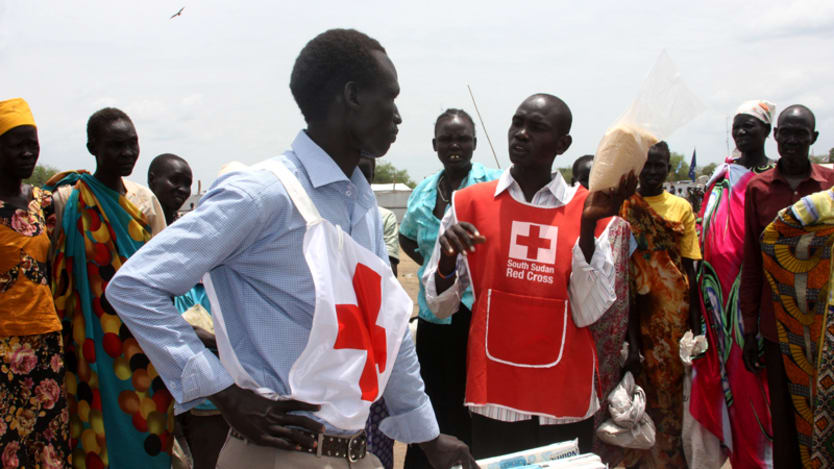
Every violent death of a health or aid volunteer sends a shudder through the humanitarian world. This happened yet again two weeks ago, when nine Red Cross volunteers were gunned down along with as many as two dozen other civilians attending a crisis meeting at a health facility in Gambo, Central African Republic.
We do not know why they were targeted — only that they were caught in a clash between armed groups in a country that has been beset by civil unrest and bloodshed for more than five years, on top of decades of unrest. One of these groups stormed the health centre, opened fire and killed our colleagues. This is the second such attack on Red Cross volunteers in CAR this year. There are currently some 12,000 United Nations peacekeepers in the country, but none were in Gambo at the time of the attack.
August 19 is World Humanitarian Day. As we look back at events since last year’s observance, there is an ominous trend. Health and aid workers — who risk their lives to care for people affected by violence — are increasingly being targeted by violence.
See more related topics:
► 'Staggering' number of attacks on health care workers reported in 2016
► WHO readies to launch online database tracking health worker attacks
► Lessons for aid workers in South Sudan
► What goes on inside one of South Sudan's leading security firms?
In 2016, 11 Red Cross and Red Crescent volunteers were killed in violent incidents. In 2017, we have experienced an escalation. So far, 24 volunteers and staff have lost their lives to violence in far-flung locations including Syria, Nigeria, Mexico and Mali, as well as CAR. This year is on track to becoming the deadliest since at least 2011.
Humanitarian Outcomes, an independent research organization, has confirmed this steady increase in violent deaths among humanitarian aid workers, including national and international workers. The total number killed in 2005 was 53. By 2015, that number had more than doubled, to 109. National volunteers have been by far the most frequent victims of violence since 1997, representing some 80 percent of aid workers attacked, according to the Aid Worker Security Database.
In CAR, as elsewhere, the vast majority of humanitarian first responders are local volunteers. Red Cross and Red Crescent local volunteers often act as the major or even exclusive humanitarian players within crisis settings.
They have excellent credentials to do this work. They speak the local language, understand the local culture and are committed to helping their neighbours. This was the case for the nine persons murdered in Gambo.
A 2016 study of 60 active Red Cross workers in CAR by my organization, the International Federation of Red Cross and Red Crescent Societies, found that 98 percent of subjects said their main motivation for volunteering was to help people in need and save lives. Three-quarters of the study subjects had been volunteering for more than two years, and nearly a fifth for more than 10 years.
In many instances, we have not understood what prompted the targeting of humanitarian workers, who seek to provide assistance to everyone in need — no matter what their convictions or allegiances. These people are courageous and committed, but if we want them to keep coming forward and continuing their vital work, we must do more to ensure their safety.
The responsibility to protect aid workers and civilians lies with parties to the conflict. International humanitarian law makes this clear.
However, there are other steps that aid organizations and their partners can take to improve the safety of volunteers and other personnel. International organizations can, for example, help their national counterparts provide more extensive and systematic security training for local volunteers. We can do this by offering expertise, and by providing dedicated resources so that national organizations can foster cultures of safety and security.
We can also ensure that volunteers and their families are protected in case something does go wrong. We are doing this now in CAR, with the families of those killed in Gambo. We believe, at the very least, that all volunteers should be insured, and states should be supported to offer safety nets for families.
But given the challenges, this will never be enough. Humanitarian organizations cannot solve the problem alone.
National volunteers represent an irreplaceable lifeline in times of conflict, natural disasters and disease outbreaks. Without them, countless communities would be left alone and without aid. They are a precious resource that the global community has failed to appreciate fully.
Clearly, a more systematic approach is needed: One that involves a global effort to foster understanding about why humanitarian volunteers — who commit to maintaining neutrality — should be protected by everyone.
Join the Devex community and access more in-depth analysis, breaking news and business advice — and a host of other services — on international development, humanitarian aid and global health.








